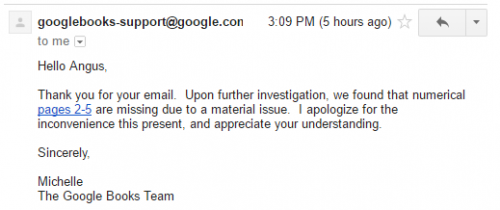
I am looking forward to presenting my Digital Parisian Stage corpus and the exciting results I’ve gotten from it so far at the American Association for Corpus Linguistics at Iowa State in September.

I am looking forward to presenting my Digital Parisian Stage corpus and the exciting results I’ve gotten from it so far at the American Association for Corpus Linguistics at Iowa State in September.

If you have an Android phone like me, you probably use Google Calendar. I like the way it integrates with my contacts so that I can schedule events with people. I like the idea of it integrating with my Google+ contacts to automatically create a calendar of birthdays that I don’t want to miss. There’s a glitch in that, but I’ve created a new app to get around it, called Selected Birthdays.

Last month I wrote about the fact that intelligibility – the ability of native speakers of one language or dialect to understand a closely related one – is not constant or automatic. A major factor in intelligibility is familiarity: when I was a kid, for example, I had a hard time understanding the Beatles until I got used to them.

It’s that time again! A bunch of really eager computer scientists have a prototype that will translate sign language to speech! They’ve got a really cool video that you just gotta see ! They win an award! (from a panel that includes no signers or linguists). Technology news sites go wild!

I just got back from attending my second meeting of the Northeast Modern Language Association. My experience at both conferences has been very positive: friendly people, interesting talks, good connections. But I would like to see a little more linguistics at NeMLA, and better opportunities for linguists to attend. I’ve talked with some of the officers of the organization about this, and they have told me they welcome more papers from linguists.

There’s an idea that dialects are mutually intelligible and languages are mutually unintelligible. John McWhorter had a nice piece in the Atlantic where he summarized the evidence against this idea. There are two factors in mutual intelligibility that McWhorter does not mention: familiarity and power. Ultimately we can place any pair of language varieties on a continuum of closeness.

The spectacle of two bilingual Presidential candidates arguing in Spanish last week reminded me of the Twitter feed, “Miguel Bloombito,” created by Rachel Figueroa-Levin to mock our former Mayor’s Spanish for the amusement of her friends. I may be coming late to the party here, but Bloombito is still tweeting, and was recently mentioned by one of my fellow linguists.

I was pleased to have the opportunity to announce some progress on my Digital Parisian Stage project in a lightning talk at the kickoff event for New York City Digital Humanities Week on Tuesday. One theme that was expressed by several other digital humanists that day was the sheer volume of interesting stuff being produced daily, and collected in our archives.
Gretchen McCulloch has been posting about epistemic modality on her All Things Linguistic blog recently. If you don’t know what epistemic modality is, very briefly, in many languages (including English), there are words that are ambiguous in a particular way: between saying something about our social and moral codes, and saying something about our knowledge of the world. Consider this expression of necessity: She should be there by now.